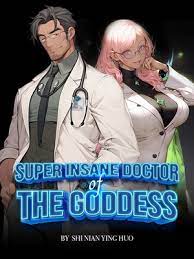Life of Being a Crown Prince in France - Chapter 156
- Home
- Life of Being a Crown Prince in France
- Chapter 156 - Chapter 156 Chapter 142 Letter from Catherine II
Chapter 156: Chapter 142: Letter from Catherine II
Please continue reading on ΒOXΝʘVEL.ϹΟM .
Joseph glanced again in the direction of Talleyrand and said to Louis XVI, “Father, if he comes to bother you again, just send him to me. I have a way to persuade him.”
Louis XVI, relieved at the thought of ridding himself of the persistent priest, readily agreed, “Then I must thank you, Joseph.”
As he spoke, he found himself thinking back on the glory and praise the caplock gun had brought him today, and he couldn’t help but look at his son wistfully, “Joseph, if you have any other ideas for new weapons, you must tell me right away.”
Joseph smiled and nodded, thinking to himself that he definitely couldn’t let you sit idle. Every day you’re idle is a huge loss to the modernization of France’s armaments.
“For now, instruct the craftsmen on how to make caplock guns. I do have a concept for rifled guns, but it’s not yet mature. Once I have it figured out, I will surely tell you.”
The principle and structure of the rifled gun, of course, were already in existence, but Joseph feared his father’s focus on this would affect the construction progress of the armory, so he had no choice but to withhold it for now.
“Rifled guns?” Louis XVI was somewhat puzzled, “Haven’t people already made those?”
Joseph laughed and gestured dismissively, deliberately lowering his voice, “The current rifled guns are very difficult to load. The bullet has to be hammered into the barrel, and it can even get stuck halfway down. My design for rifled guns allows for very easy loading, almost as smooth as smoothbore guns.”
Louis XVI’s eyes instantly lit up, “Good Lord, what kind of brain have You bestowed upon my Joseph?!”
He clutched his son’s arm tightly, excited, “Then you must hurry! Soon, we’ll have another gun that will shock all of Europe!”
“Of course, dear father.”
After talking about the glorious moment at today’s training ground for a while longer, Joseph bid farewell to the king, who was beaming with pride, and went straight to the Finance Minister’s office.
Brian hurried out to meet him, smiling warmly, “Your Royal Highness, Crown Prince, it’s wonderful to see that your injury has healed! Thank God for His protection!”
(vitag.Init = window.vitag.Init || []).push(function(){viAPItag.display(“vi_765923973”)})
He did indeed care deeply for Joseph’s well-being, having visited almost daily for fear that the Crown Prince might suffer an unforeseen event.
Joseph quickly made the sign of the cross over his chest, “Thank God. And thank you, Archbishop Brian.”
As they sat down, Joseph remembered the encounter with the Minister of Civil Registration from the day before and asked, “Archbishop Brian, I hear that Earl Nico Herve’s trip to England wasn’t so smooth?”
Brian sighed and nodded, “Yes, he’s indeed not very good at those kinds of situations, reacting slowly to various diplomatic maneuvers and often misspeaking… Oh, he even got the King of England’s lineage wrong in public.”
He paused, then looked at Joseph and continued, “Moreover, after the huge embarrassment we dealt Vilran, he came as if nothing had happened to report to me about going to Russia. Not to mention resigning.”
Joseph frowned upon hearing this. He had previously agreed with Brian to send Foreign Minister Vilran off to Russia and miss the Anglo-French trade negotiations, fully expecting him to resign in anger. Yet he hadn’t anticipated Vilran’s remarkable self-control.
In fact, Vilran had thought of resigning even before reaching Russia, but the Duke of Orleans repeatedly requested that he stay. With no choice but to save face, he continued to linger in the Cabinet.
Because he was the Duke of Orleans’ only political ally left in the Cabinet. Losing him was something the Duke of Orleans could not accept.
Brian said with some difficulty, “Your Highness, if Vilran does not leave, then about Earl Nico Herve…”
Joseph knew that according to the agreement made during the dismissal of Brian, Nico Herve was supposed to become the Foreign Minister.
He shook his head slightly, “Earl Nico Herve isn’t suited for diplomacy either.
“Let’s do this, I will think of a way to compensate him.”
“What do you plan to do?”
“The Count of Nicoae is still better skilled with registry work. We can have him start planning the identity card system.”
“Identity card?”
Joseph smiled and said, “It’s about issuing a card to every citizen of France. It will have a unique number to distinguish each individual’s identity.”
“Why issue these…” Brian, after all, was capable of holding the position of Chief Minister, and had hardly spoken half a sentence before realizing the key point, “It can be used to levy the Poll Tax.”
“There are many other benefits,” Joseph said. “For example, it can be used for screening spies, wanted criminals. It can prevent welfare fraud. It facilitates identity recognition, and prevents fraud and so forth.”
Of course, Joseph’s main reason for promoting the identity card was for taxation and trade convenience. In the future, it could also be used in the colonies to strengthen the sense of national identity.
Brian nodded, “The Count of Nicoae has always wanted to do something noticeable. And this will involve every single person in the country. He should be satisfied.”
Joseph added, “We could even include the signature of the Minister of Registry on the identity card to confirm its validity.”
“That would be perfect.”
Joseph then thought of Vilran and frowned involuntarily, “We must continue to marginalize Vilran; we need to replace the Foreign Minister with our person.”
Brian immediately nodded in gratitude, “Thank you, Your Highness.”
From his perspective, it was because of the impeachment that Vilran had offended him, which was why the Crown Prince was so intolerant of him.
In fact, Joseph was more concerned with consolidating the political landscape and maximizing the weakening of the Duke of Orleans’ power to pave the way for future reforms of the Old Nobility.
Speaking of Vilran, Brian remembered his report from a few days ago and hurriedly said to Joseph, “Your Highness, Vilran did bring back some news from his mission to Russia.”
He stood up, took several papers from the drawer, and handed them to Joseph, “The Empress of Russia is very concerned about our interest in the Russo-Turkish war. She repeatedly told Vilran that it was the Ottomans who initiated the war, attempting to invade Russian territory in Crimea and Georgia, and attack the Russian fleet. They had no choice but to counterattack.
“Oh, this is a copy of a letter from Empress Catherine to the King.”
<img data-ywcc-imgId=”10116661″ data-ywcc-path=”/imgChapter/8941652603683501/27700189502535504/10116661/705fad0a1bd5980f47e6e1b74c63608ezvnbsrH75v7ifp6.jpg”>
Joseph didn’t care who was right or wrong between Russia and the Ottomans. The important thing was that the situation there could be exploited by France.
He looked at Catherine’s letter and saw the Empress very politely say some words regarding the amity between Russia and France, then urged France to support her by declaring war on the Ottomans. She even suggested that it could be presented as a new Crusade led by France.
Brian added from the side, “According to Vilran, the Empress of Russia also hinted at the possibility of a marital alliance between Russia and France.”
Joseph smiled. A marriage alliance with Russia, for the time being, brought no substantial benefit to France.
However, when he read the line “support Russia’s campaign against the Ottomans,” he couldn’t help but narrow his eyes—considering that North Africa, from west to east, including Algiers, Tunisia, Egypt, etc., although de facto independent countries, were still nominally provinces of the Ottoman Empire.
If France allied with Russia against the Ottomans, wouldn’t there be a pretext to intervene in North Africa as part of the effort to strike at the Ottomans?














